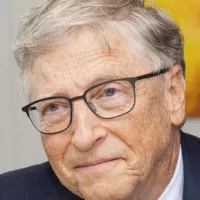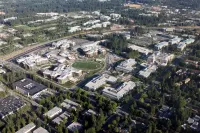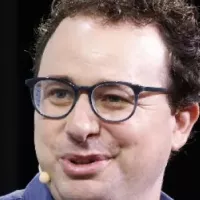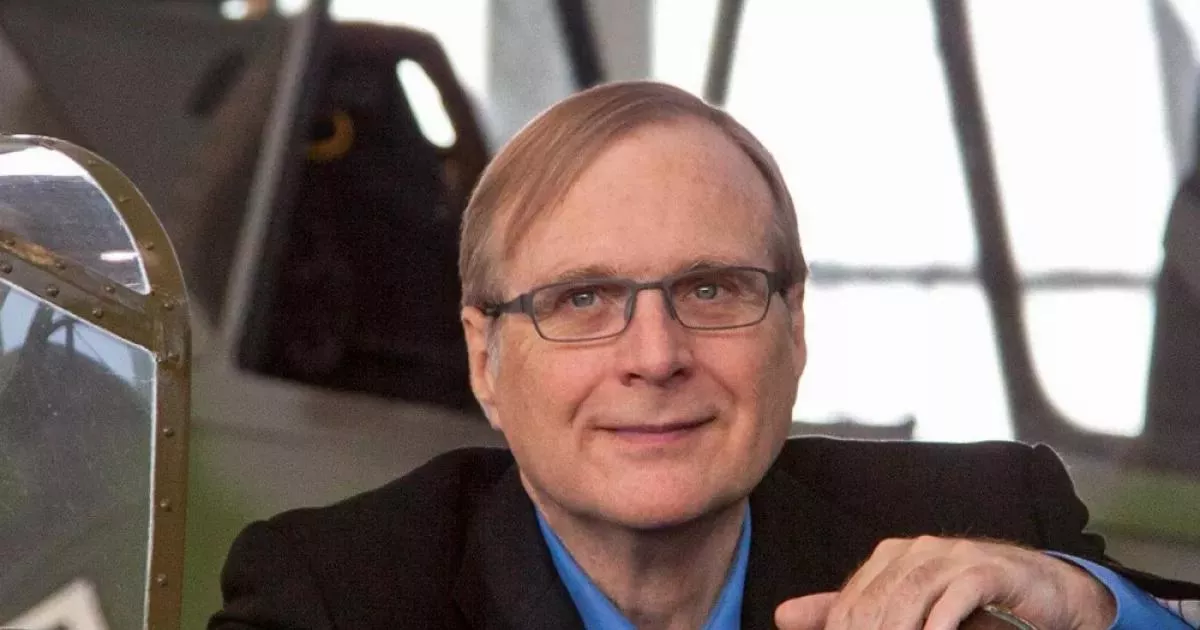From career breakthroughs to professional milestones, explore how Paul Allen made an impact.
Paul Allen was an American businessman and computer programmer best known for co-founding Microsoft with Bill Gates in 1975, a pivotal moment in the microcomputer revolution. Beyond Microsoft, Allen was a diverse figure, engaging in research, film production, exploration, sports management, investment, authorship, and philanthropy. At the time of his death in 2018, he was ranked among the wealthiest individuals globally, highlighting his significant impact across various domains.
1972: Allen and Gates Form Traf-O-Data
In 1972, Paul Allen and Bill Gates formed Traf-O-Data to make traffic counters based on the Intel 8008 processor.
1975: Microsoft Formed
In 1975, Paul Allen and Bill Gates formed Microsoft in Albuquerque, New Mexico. Allen came up with the name "Micro-Soft".
1975: Microsoft Corporation Co-founded
In 1975, Paul Allen co-founded Microsoft Corporation with Bill Gates. This marked a significant milestone in the microcomputer revolution.
1980: Microsoft Secures DOS Contract with IBM
In 1980, Microsoft committed to delivering DOS to IBM. Allen spearheaded a deal for Microsoft to purchase QDOS. This secured a contract to supply the DOS that ran on IBM's PC line.
June 25, 1981: Microsoft Incorporated
On June 25, 1981, Microsoft restructured to become an incorporated business in Washington. Gates became president, and Allen became executive vice president and vice chairman.
1982: Allen Effectively Leaves Microsoft
In 1982, Allen effectively left Microsoft after being diagnosed with Hodgkin's lymphoma, although he remained on the board.
1983: Allen Refuses Gates' Buyout Offer
In 1983, Gates tried to buy Allen out at $5 per share, but Allen refused and left the company with his shares intact, making him a billionaire when Microsoft went public.
1983: Departure from Microsoft
In 1983, Paul Allen departed from Microsoft to pursue his business and creative ventures.
1983: Allen Quits Day-to-Day Work at Microsoft
In 1983, Paul Allen quit from day-to-day work at Microsoft after being diagnosed with Hodgkin lymphoma, although he remained on the board as vice-chairman.
1986: Gates and Allen Donate to Lakeside School
In 1986, Bill Gates and Paul Allen donated $2.2 million to their childhood school, Lakeside. They remained friends for the rest of Allen's life.
1986: Vulcan Inc. Founded
In 1986, Paul Allen and his sister, Jody Allen, founded Vulcan Inc. to manage his business and philanthropic efforts.
1988: Allen Purchases Portland Trail Blazers
In 1988, Paul Allen purchased the Portland Trail Blazers NBA team for $70 million.
1989: Donation for Allen Library Construction and Endowment
In 1989, Paul Allen donated $2 million to the University of Washington to construct the Allen Library, named after his father, Kenneth S. Allen. He also donated an additional $8 million to establish the Kenneth S. Allen Library Endowment.
1990: Trail Blazers Reach NBA Finals
The Allen-owned Trail Blazers reached the NBA Finals in 1990.
1992: Trail Blazers Reach NBA Finals
The Allen-owned Trail Blazers reached the NBA Finals again in 1992.
November 9, 2000: Allen Resigns from Microsoft Board
On November 9, 2000, Paul Allen resigned from his position on the Microsoft board of directors, staying on as a senior strategy advisor.
2000: Played Rhythm Guitar on Album Grown Men
In 2000, Paul Allen played rhythm guitar on the independently produced album Grown Men.
2000: Allen Resigns from Microsoft Board
In 2000, Paul Allen resigned from his position on Microsoft's board, taking on the role of senior strategy advisor to the company's management team.
2002: Far from Heaven Film
In 2002, Allen's film production company, Vulcan Productions, produced the film "Far from Heaven".
2002: Seahawks Move to Seahawks Stadium
In 2002, the Seattle Seahawks moved into Seahawks Stadium (now Lumen Field), after Allen invested in upgrading the stadium.
September 2003: Launch of the Allen Institute for Brain Science
In September 2003, Paul Allen launched the Allen Institute for Brain Science with an initial contribution of $100 million, aiming to advance the understanding of the human brain. The institute adopted a Big Science and open science approach, making its research tools accessible to the scientific community.
October 2003: Dedication of the Paul G. Allen Center for Computer Science and Engineering
In October 2003, the Paul G. Allen Center for Computer Science and Engineering at the University of Washington was dedicated. Allen had donated $14 million in 2002 for its construction.
October 4, 2004: Allen Confirms Investment in SpaceShipOne
On October 4, 2004, Paul Allen confirmed he was the sole investor behind Burt Rutan's SpaceShipOne. It won the Ansari X Prize and received the $10 million prize.
2004: Funds SpaceShipOne
In 2004, Paul Allen funded SpaceShipOne, the first crewed private spaceplane.
2005: Rx for Survival: A Global Health Challenge
In 2005, Allen's Vulcan Productions released Rx for Survival: A Global Health Challenge
2005: Hard Candy Film
In 2005, Allen's film production company, Vulcan Productions, produced the film "Hard Candy".
2005: Seahawks Win NFC Championship
The Seattle Seahawks won the NFC Championship in 2005 under the ownership of Paul Allen.
2006: Where God Left His Shoes Film
In 2006, Allen's film production company, Vulcan Productions, produced the film "Where God Left His Shoes".
April 2, 2007: Allen Purchases the Rose Garden
On April 2, 2007, Paul Allen purchased the Rose Garden (now Moda Center), the arena where the Portland Trail Blazers play. He called it a major milestone.
2007: Judgment Day: Intelligent Design on Trial
In 2007, Allen's film production company, Vulcan Productions, produced "Judgment Day: Intelligent Design on Trial".
2009: Seattle Sounders FC Begins Play
In 2009, Seattle Sounders FC, a Major League Soccer franchise co-owned by Allen's Vulcan Sports & Entertainment, began play.
2010: Gift to Build the Paul G. Allen School of Global Animal Health
In 2010, Paul Allen announced a gift of $26 million to Washington State University, his alma mater, to build the Paul G. Allen School of Global Animal Health. This was the largest private donation in the university's history.
2010: Launch of the Allen Distinguished Investigators Awards (ADI)
In 2010, Paul Allen launched the Allen Distinguished Investigators Awards (ADI) to provide funding for scientists engaged in early-stage research projects, particularly those struggling to secure traditional funding sources.
2010: Allen Signed The Giving Pledge
In 2010, Paul Allen signed The Giving Pledge, committing to donate at least half of his wealth to philanthropic endeavors. This pledge reinforced his dedication to supporting various causes through the Paul G. Allen Family Foundation and other avenues.
2010: This Emotional Life TV Series
In 2010, Vulcan Productions released This Emotional Life.
December 13, 2011: Allen Announces Stratolaunch Systems
On December 13, 2011, Paul Allen announced the creation of Stratolaunch Systems, a proposed orbital launch system.
2011: Publication of Idea Man memoir
In 2011, Paul Allen's memoir, "Idea Man: A Memoir by the Co-founder of Microsoft", was published by Portfolio, a Penguin Group imprint, recounting his early interest in computers, the founding of Microsoft, and his post-Microsoft ventures.
2012: South Lake Union Investment "Unexpectedly Lucrative"
In 2012, The Wall Street Journal called Paul Allen's South Lake Union investment "unexpectedly lucrative." Vulcan sold an office complex to Amazon.com for $1.16 billion.
November 2013: Release of Pandora's Promise on CNN
In November 2013, Vulcan Productions released "Pandora's Promise", a documentary about nuclear power, on CNN. The film, directed by Robert Stone, was followed by college and private screenings, as well as panel discussions across the country.
2013: Major Label Album Release: Everywhere at Once
In 2013, Paul Allen and the Underthinkers released a major label album on Sony's Legacy Recordings, titled "Everywhere at Once".
2013: Girl Rising Film
In 2013, Vulcan Productions co-produced the Richard E. Robbins-directed film Girl Rising, which tells stories of girls seeking an education.
2013: Seahawks Win NFC Championship
The Seattle Seahawks won the NFC Championship in 2013 under the ownership of Paul Allen.
January 2014: Allen Holds 100 Million Shares of Microsoft
In January 2014, Paul Allen still held 100 million shares of Microsoft.
February 2014: Seahawks Win Super Bowl XLVIII
In February 2014, the Seattle Seahawks won Super Bowl XLVIII under Paul Allen's ownership.
August 2014: Seahawks Valued at $1.33 Billion
In August 2014, Forbes valued the Seattle Seahawks at $1.33 billion.
December 2014: Creation of the Allen Institute for Cell Science
In December 2014, Paul Allen committed $100 million to establish the Allen Institute for Cell Science in Seattle. The institute aimed to create a virtual model of cells to advance the treatment of various diseases, with all data and tools made publicly available online.
2014: Support for the Sea Around Us Project
In 2014, Paul Allen began supporting the University of British Columbia's Sea Around Us Project to enhance data on global fisheries and combat illegal fishing.
2014: Allen Pledged At Least $100 Million Toward The Fight To End The Ebola Virus Epidemic
In 2014, Paul Allen pledged at least $100 million toward the fight to end the Ebola virus epidemic in West Africa, making him the largest private donor in the Ebola crisis. He also created TackleEbola.org as a way to spread awareness and serve as a vehicle for donors to fund projects in need.
2014: Founding of the Allen Institute for Artificial Intelligence (AI2)
In 2014, the Allen Institute for Artificial Intelligence (AI2) was founded, focusing on artificial intelligence research and engineering. Led by Dr. Oren Etzioni, AI2 was modeled after the Allen Institute for Brain Science.
April 13, 2015: Vulcan Aerospace Announced
On April 13, 2015, Vulcan Aerospace was announced as the company within Allen's Vulcan Inc. to plan and execute projects to shift how the world conceptualizes space travel through cost reduction and on-demand access.
July 2015: Launch of the Global FinPrint initiative
In July 2015, the Global FinPrint initiative was launched with funding from Paul Allen. This three-year survey focused on sharks and rays in coral reef areas, aiming to provide crucial data for conservation programs.
October 2015: Paul G. Allen Family Foundation Awards Grants for Virus Outbreak Prevention
In October 2015, the Paul G. Allen Family Foundation announced the awarding of seven new grants totaling $11 million to support efforts in preventing future widespread outbreaks of viruses.
November 3, 2015: Passage of Washington State Initiative 1401
On November 3, 2015, Washington state initiative 1401, backed by Paul Allen, passed. The initiative prohibits the purchase, sale, and distribution of products made from 10 endangered species, including elephants, rhinos, and sharks.
2015: Oscar-nominated Body Team 12
In 2015, Allen's Vulcan Productions released the Oscar-nominated documentary "Body Team 12".
2015: Racing Extinction Film
In 2015, Allen's Vulcan Productions released the movie "Racing Extinction".
2015: Launch of the Smart City Challenge
In 2015, Paul Allen and Vulcan Inc. partnered with the United States Department of Transportation (USDOT) to launch the Smart City Challenge. This contest invited American cities to propose innovative transportation systems, aiming to improve quality of life and reduce greenhouse gas emissions.
2015: Founding of the Seattle Art Fair
In 2015, Paul Allen founded the Seattle Art Fair, a four-day event featuring over 60 galleries from around the world, including notable participation from the Gagosian Gallery and David Zwirner.
2015: Publication of The Great Elephant Census Results
In 2015, the results of the Great Elephant Census, funded by Paul Allen, were published. The census, the largest of its kind since the 1970s, surveyed African savannah elephants across 20 countries and revealed rapid rates of decline in their populations.
April 2016: Coral reef restoration plan completed
In April 2016, the Department of Environment (DoE) and Paul Allen's Vulcan Inc. successfully completed a restoration plan to help speed recovery and protect the future of coral in the area damaged by Tatoosh.
August 2016: Announcement of Upstream Music Fest + Summit
In August 2016, Paul Allen announced the launch of Upstream Music Fest + Summit, an annual festival inspired by South by Southwest.
2016: Pledge for Allen Discovery Centers at Tufts and Stanford
In 2016, Paul Allen pledged a $10 million donation over four years for the creation of the Allen Discovery Centers at Tufts University and Stanford University, which would fund research to read and write the morphogenetic code.
2016: Launch of The Paul G. Allen Frontiers Group
In 2016, The Paul G. Allen Frontiers Group was launched with a $100 million commitment. This group aimed to support scientists and research at the frontier of bioscience, targeting innovative and unconventional ideas to accelerate discovery.
2017: Reorganization of UW's Computer Science and Engineering Department
In 2017, Paul Allen donated $40 million (with an additional $10 million from Microsoft) to reorganize the University of Washington's Computer Science and Engineering department into the Paul G. Allen School of Computer Science and Engineering.
May 2019: Stratolaunch Systems Ceases Operations
As of the end of May 2019, Stratolaunch Systems Corporation had ceased operations.
2021: Trail Blazers Valued at $2.09 Billion
According to Forbes, in 2021, the Trail Blazers were valued at $2.09 billion.
Mentioned in this timeline

Bill Gates an American businessman and philanthropist revolutionized personal computing...
The United States of America is a federal republic located...

Sony is a Japanese multinational conglomerate based in Tokyo Its...

Microsoft an American multinational technology corporation headquartered in Redmond Washington...
CNN Cable News Network is an American multinational news media...

The Super Bowl is the annual championship game of the...
Trending
31 minutes ago Ski Mountaineering to Debut at Milan-Cortina Winter Olympics in 2026.

2 hours ago Selena Gomez's Spiced-Plum Manicure and TikTok Clone Theory Spark Buzz

2 hours ago Kit Harington and Sophie Turner Gag After On-Screen Kiss in New Movie

2 hours ago Trump administration updates, Iran nuclear efforts, and White House controversies unfold.

2 hours ago Dario Amodei Highlights India's Central Role in Shaping AI's Future at AI Summit.

3 hours ago Yoon Suk Yeol, South Korean ex-president, receives life sentence for insurrection and martial law.
Popular

Jesse Jackson is an American civil rights activist politician and...
Randall Adam Fine is an American politician a Republican who...

Pam Bondi is an American attorney lobbyist and politician currently...

Barack Obama the th U S President - was the...

Martin Luther King Jr was a pivotal leader in the...

Ken Paxton is an American politician and lawyer serving as...

![(Idea Man: A Memoir by the Co-founder of Microsoft) [By: Allen, Paul] [May, 2012] (Idea Man: A Memoir by the Co-founder of Microsoft) [By: Allen, Paul] [May, 2012]](https://m.media-amazon.com/images/I/41G+gYpPhzL._SL500_.jpg)